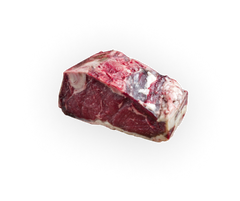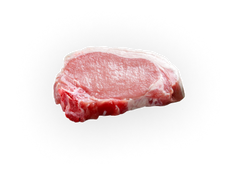Bison meat, once a staple for Indigenous peoples in North America, is making a strong comeback in modern kitchens. Often referred to as "the other red meat," bison offers a host of benefits that make it a fantastic addition to any diet. From its rich nutritional profile to its positive environmental impact, there are plenty of reasons to consider incorporating bison meat into your meals. In this blog post, we’ll explore why bison meat is a game-changer, highlighting its unique advantages and how you can enjoy it.
Nutritional Powerhouse
Bison meat is renowned for its impressive nutritional benefits. Here’s why it stands out:
Lean and Protein-Rich
Bison meat is significantly leaner than beef, making it an excellent choice for those who are health-conscious. A typical serving of bison contains fewer calories and less fat, yet it is rich in high-quality protein. This means you get more nutrients without the extra fat, supporting muscle growth and overall health.
Packed with Essential Nutrients
Bison is an excellent source of essential nutrients, including iron, zinc, and vitamin B12. Iron is crucial for oxygen transport in the blood, zinc supports immune function, and vitamin B12 is vital for nerve function and DNA synthesis. Consuming bison meat can help prevent deficiencies and promote better health.
Low in Cholesterol
Compared to other red meats, bison has a lower cholesterol content. This makes it a heart-healthy option for those looking to reduce their cholesterol levels while still enjoying delicious, meaty dishes.
Environmentally Friendly
Choosing bison meat is not only good for your health but also for the environment. Here’s how:
Sustainable Farming Practices
Bison are typically raised on open pastures, where they graze on natural grasses. This method of farming is more sustainable compared to conventional livestock farming. Bison farming often involves rotational grazing, which helps maintain healthy soil and reduces the need for chemical fertilizers and pesticides.
Reduced Carbon Footprint
Bison have a lower carbon footprint compared to other livestock, such as cattle. Their grazing habits can help sequester carbon in the soil, mitigating some of the greenhouse gas emissions associated with meat production. By choosing bison meat, you’re supporting more sustainable and environmentally friendly farming practices.
Preservation of Ecosystems
Raising bison helps preserve natural ecosystems. Bison grazing promotes biodiversity by maintaining native grasslands and providing habitats for various plant and animal species. This contrasts with the monoculture crops often used in conventional livestock feed, which can deplete soil nutrients and harm local ecosystems.
Ethical and Humane Treatment
Animal welfare is an important consideration for many consumers. Bison farming typically involves more ethical and humane practices compared to conventional livestock farming.
Natural Lifestyle
Bison are often raised in environments that closely resemble their natural habitats. They roam freely on large pastures, grazing on grasses and other forage. This natural lifestyle reduces stress and promotes better overall health for the animals.
Minimal Use of Antibiotics and Hormones
Because bison are generally healthier and raised in more natural conditions, there is less need for antibiotics and hormones. This means that bison meat is often free from these additives, making it a cleaner, more natural choice for your diet.
Culinary Versatility
Bison meat’s unique flavour and versatility make it a favourite among chefs and home cooks alike. Its rich, slightly sweet taste is similar to beef but with a distinct, earthy twist.
Cooking Tips
When cooking bison, it’s important to remember that it’s leaner than beef, so it cooks faster. To retain its tenderness and flavour, avoid overcooking. Bison is best served medium-rare to medium.
Recipe Ideas
Bison meat can be used in a variety of dishes. Here are a few ideas to get you started:
- Bison Burgers: Swap out beef for bison in your favourite burger recipe. Top with fresh greens, tomatoes, and a slice of sharp cheddar for a delicious twist.
- Bison Stew: Use bison stew meat in a hearty stew with root vegetables, garlic, and herbs. Slow-cook for a tender, flavourful meal.
- Bison Tacos: Ground bison makes a fantastic filling for tacos. Season with cumin, paprika, and chilli powder, and serve with fresh salsa and avocado.
Bison meat is a nutritious, sustainable, and delicious alternative to conventional red meats. Its rich nutritional profile, positive environmental impact, and ethical farming practices make it a game-changer for any diet. Whether you’re health-conscious, environmentally aware, or simply looking to try something new, bison meat offers a range of benefits that are hard to beat. Next time you’re at the grocery store or planning a meal, consider choosing bison meat for a healthier, more sustainable option. Your body, the environment, and local farmers will thank you.










